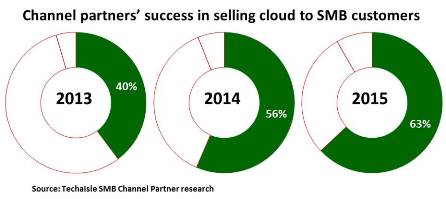For decades, the technology channel has operated on a simple, foundational premise: partnership with the vendor. The model was clear - partners were an extension of the vendor's sales force, armed with vendor certifications, aligned with vendor GTM strategies, and loyal to the brand. Their success was inextricably linked to the vendor's success. Techaisle’s latest channel research, a comprehensive study of 4,115 partners, signals that this era is not just ending; it has already been rendered obsolete by a force that vendors have ironically championed: Artificial Intelligence.
A seismic shift is underway. Partners are quietly - and not so quietly - pivoting their allegiance away from their vendor suppliers and toward the only constituency that matters in the long run: the end customer. This is not about disloyalty. It is about survival and relevance in an AI-driven world. Techaisle research identifies a key trend that should serve as a five-alarm fire for every channel chief: the channel will pivot from vendor dependency to buyer value. This is not a future prediction; it is a present-day reality unfolding in partner business models, technology choices, and investment priorities.

The Data Does not Lie: The Anatomy of a Power Shift
The traditional vendor-partner dynamic was built on a dependency on product. Vendors created technology, and partners resold it, adding a layer of service. This created a natural fealty. But the very nature of partner revenue is changing. Techaisle data indicates that partner revenue is now predominantly driven by services, with 53% coming from services versus 47% from product resale. This is a critical tipping point. When a partner's profitability is driven more by their own expertise and intellectual property (IP) than by the margin on a vendor's product, their strategic calculus fundamentally changes.
This is where AI becomes the great accelerator of independence.













